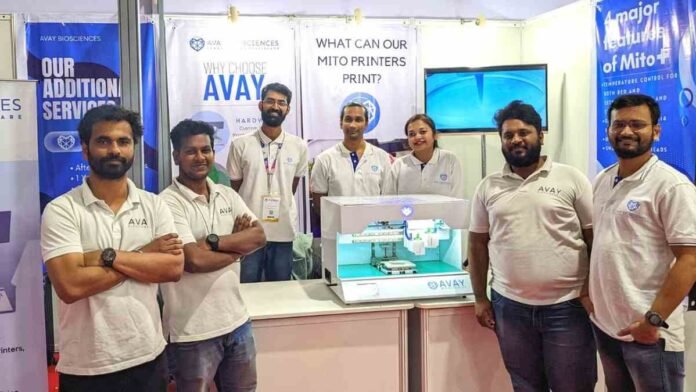Suhridh Sundaram of the Chennai-based business Avay Bio sciences describes how their innovative bio 3D printer, which can print human tissues and other bio materials, has the potential to revolutionize the game.
Avay Bio sciences, a deep tech business located in Chennai, made a huge advancement earlier this month when they unveiled their homegrown, “state-of-the-art” bio 3D printer that can produce human tissues.
The printer, known as “Mito Plus,” was unveiled during the Bengaluru Tech Summit, which took place from November 16–18, 2022. But why is this a significant accomplishment?
It is essential to comprehend what bioprinting is before providing a response to this query. It is a technique for replicating tissues that makes use of “bioinks,” which are designed to create synthetic living tissues like skin.
At IISc, Bangalore, the Mito Plus prototype’s first installation took place. What we see today is a more sophisticated bio 3D printer that was created using feedback on a working prototype from Dr.Bikramjit Basu’s research group at the university.
In India, Avay Biosciences develops both software and hardware entirely in-house for end-to-end bio 3D printing solutions.
All of this led to them increasing their design, manufacturing, electrical, and software teams in order to create something far different from the original — a genuine bioprinter.
Avay Biosciences has developed 3D printers in-house, with around 70% of production taking place in Chennai and Bangalore. They have a specialised software team that is continually introducing new features and improving existing software.
How can these features help the bioprinting process? Several biomaterials are temperature sensitive and need specific environmental conditions.
Bio printing is a subset of the bigger market for 3D printing. While typical 3D printing involves the use of plastics and other polymers, bioprinting involves the use of living cells and gel-like polymer materials.
Bio printers function essentially identically to conventional 3D printers, with one important exception. Bio printers deposit layers of bio materials, which may contain living cells, instead of delivering materials such as plastic, metal, or powders, to produce complex structures such as skin tissue, liver tissue, and so forth.
Simply expressed, the availability of low-cost bio printers is a critical milestone in the development of artificial organs because all future research is dependent on this infrastructure. After all, hundreds of lives are lost in India alone each year owing to a dearth of appropriate organ donors.
Even if a person is lucky enough to discover one, transplants might cost more than Rs 10 lakh, not counting anti-rejection medicines.
So how far is Avay from developing a bio 3D printer device capable of creating artificial organs and eliminating the need for organ transplants? Yet, the firm already has clients and partners from prominent research and development institutes in India, including IIT Madras, ICT-Mumbai, National Institute of Pharmaceutical Education And Research (NIPER), Hyderabad, and BITS Pilani (Goa Campus). Startups like Avay Biosciences are driving the pace in the private sector in India.
After all, the worldwide 3D bioprinting industry is now valued at USD 1.3 billion as of 2022 and is expected to reach USD 3.3 billion by 2027, according to numerous sources. It is in high demand in both the pharmaceutical and cosmetic sectors.






